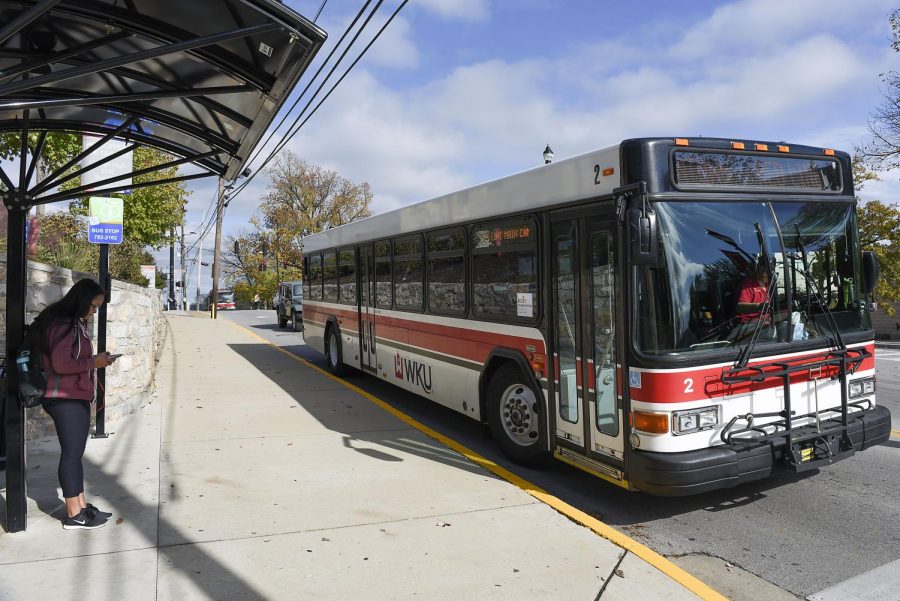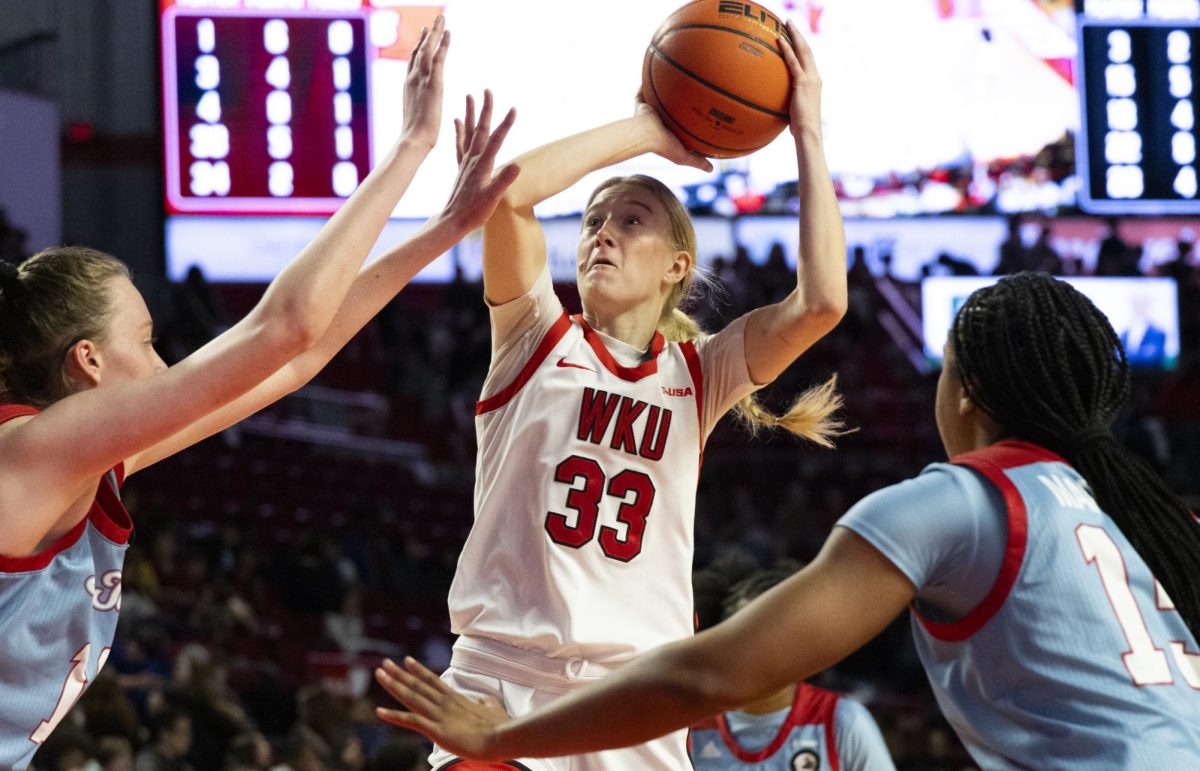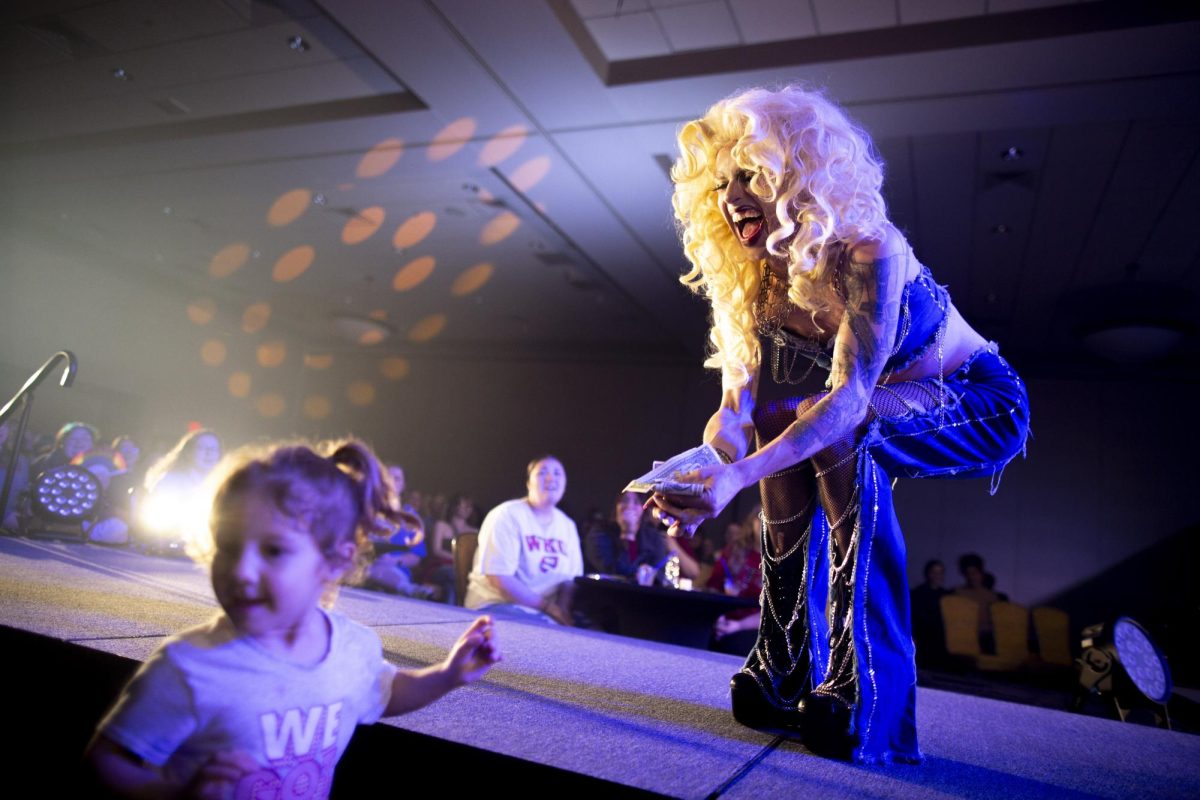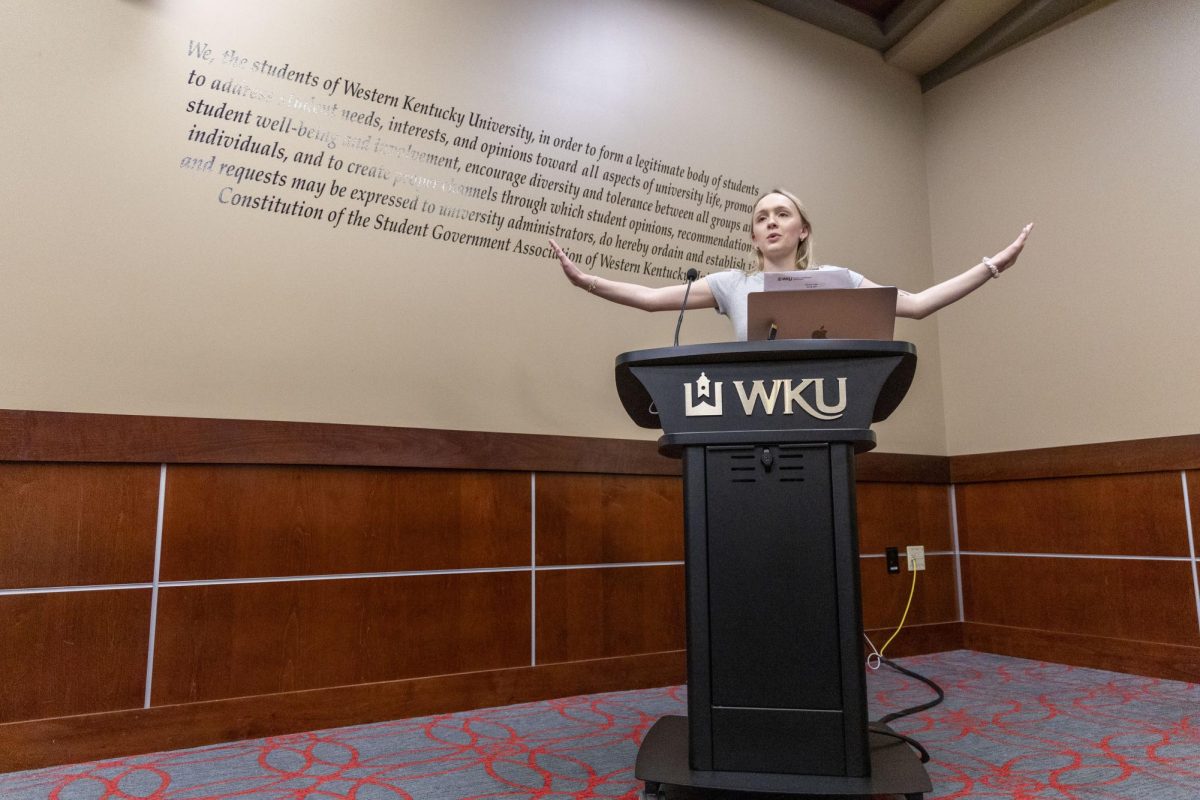Earth Day Festival welcomes bus that runs on biofuel
April 17, 2018
A shuttle running on recycled cooking oil will be implemented on WKU’s campus starting this week, according to the Office of Sustainability.
WKU engineers have successfully processed used-soybean oil from dining services on campus into diesel fuel, said Kevin Schmaltz, a WKU mechanical engineering professor. The biodiesel has been used on farm equipment on the university farm for several years, Schmaltz said, and this Earth Day, it’s coming to campus.
Christian Ryan, coordinator of the office of sustainability, said the bus will take its maiden voyage at WKU’s Earth Day Festival April 19. The bus will be a white line shuttle, running between Main and South Campus, Ryan said.
Ryan said the buses on campus currently run on five percent biodiesel. She said this bus will run on 100 percent biodiesel, making it the first of its kind on campus.
“You can use biodiesel on any diesel engine,” Ryan said.
Schmaltz said to make the biodiesel, engineers gather the used cooking oil, donated from Aramark, and mix it with a small amount of ethanol and lye to kickstart the chemical reaction. He said the product is a usable-diesel fuel with a small amount of glycerin waste.
“The waste products of biodiesel and regular diesel are similar, but the carbon dioxide we produce with biodiesel was recently taken from the air when the soybeans were grown to make cooking oil,” Schmaltz said. “This makes it less impactful to the environment.”
Jennifer Tougas, director of Parking and Transportation Services, said the biodiesel will cost the university the same as commercial diesel.
“We may be able to save some money on fuel since it is being manufactured on campus,” Tougas said. “But we have to see how the numbers play out.”
Ryan said the bus will mainly help to reduce the university’s overall carbon footprint.
Schmaltz said the quantity of the renewable source is an obstacle in expanding the program. He said the amount of diesel fuel produced depends on the amount of cooking oil collected. He said the department collects, on average, 5,000 gallons of cooking oil per year which converts to 3,000 gallons of fuel.
“The current project is to get comfortable running a bus on biodiesel,” Schmaltz said. “Then we will consider steps to acquire more cooking oil and try to expand the vehicles we can provide with fuel.”
Ryan said the bus is part of an applied-learning program for engineering students. Students are able to take what they are learning in classrooms and apply it to real world problems, she said.
“The best kind of research practice is one that is applied in the real world,” Ryan said.
Tougas said the bus will feature educational panels throughout its interior detailing the process in which biodiesel is made.
Students will have the opportunity to enter a “name the bus” contest at the Earth Day festival, Ryan said. Events will take place on the bus and prizes will be handed out throughout the day.
WKU’s annual Earth Day Festival will be held from 10 a.m. to 2 p.m. at Centennial Mall Thursday, April 19. The free event will include demonstrations, vendors and activities.
News reporter Amelia Hicks can be reached at 270-745-6011 and amelia.hicks852@topper.wku.edu. Follow Amelia on Twitter at @ameliahicks852.













